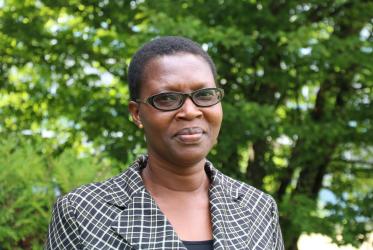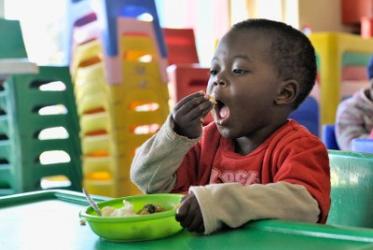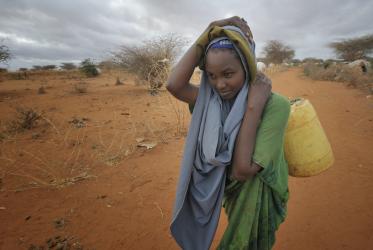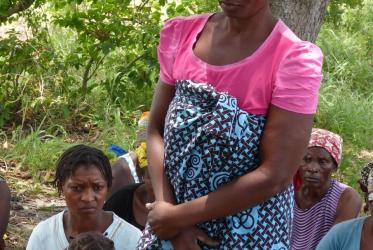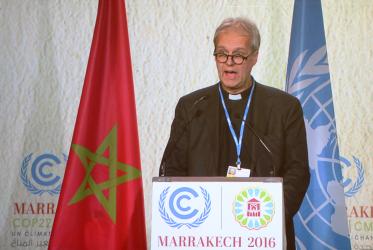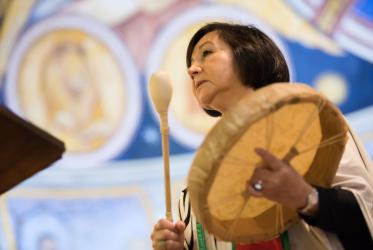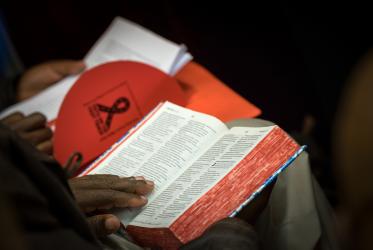Displaying 81 - 100 of 137
10 July 2017
Applications open for WCC Eco-School
10 May 2017
UN discussion focuses on women, HIV and property rights
21 March 2017
Seven weeks of Lent highlight water crisis in Africa
01 March 2017
Food and land justice focus of Mozambique workshop
19 December 2016
Water justice focus of consultation in Nigeria
29 November 2016
Ecumenical Patriarch: Survival of God’s creation is at stake
17 November 2016
Faith groups march for climate justice
15 November 2016
Faith communities explore concrete climate action at COP22
10 November 2016
Advocates urge transition to low-carbon economy, clean energy
09 November 2016
Bible study gives hope as youth reflect on HIV
02 November 2016
Zambia: “On HIV, we do not compete. We work together.”
20 October 2016
New videos help congregations hasten HIV response
20 October 2016
Kenya: Voice of faith communities crucial in overcoming HIV
14 October 2016
